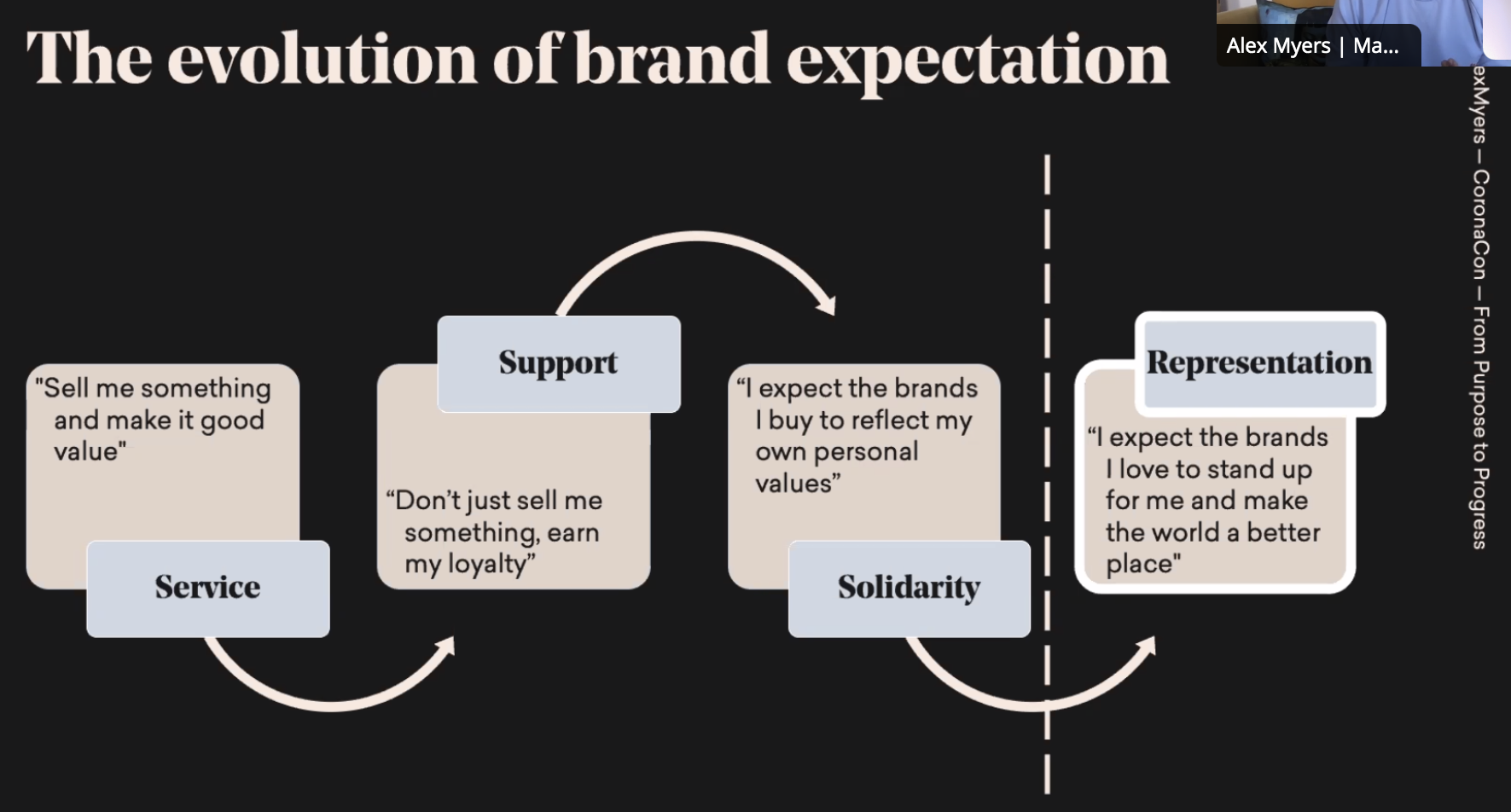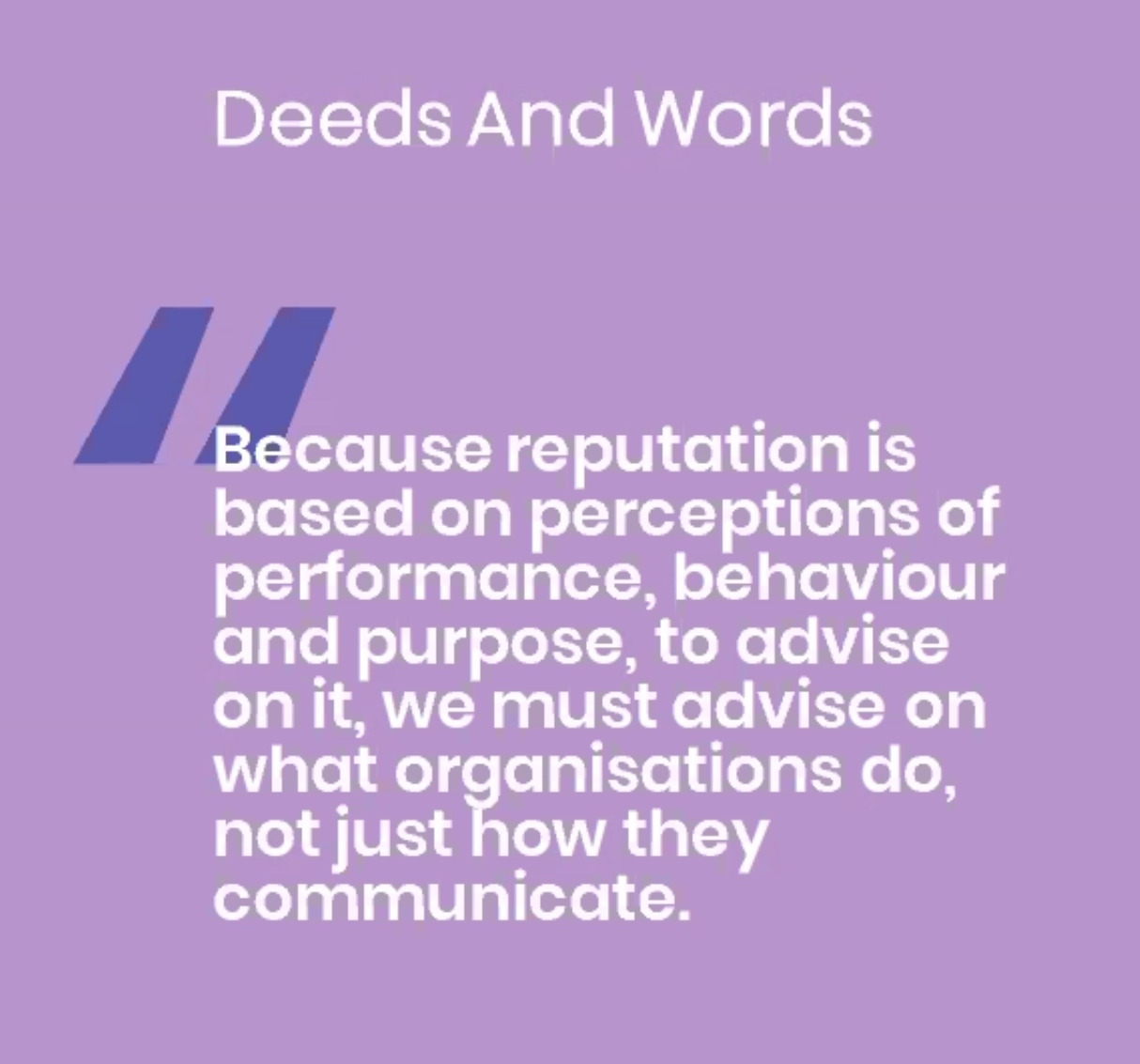PR is a strategic management function. and we’re well respected in a crisis. But we need to use this time to build relationships and make sure people know the value of what we are adding. Jenni Field, CIPR President
I thought I’d had enough of Zoom calls, and the idea of an afternoon conference online would normally fill me with dread. #CoronaCon (a CIPR hosted event), however, was different and turned out to be thoroughly enjoyable, thought-provoking, and challenging.
We had a team of brilliant speakers from PR and an excellent host in Darryl Sparey from Hard Numbers, and over the course of 2 hours rattled through a series of pithy quotes, new ideas, personal stories, and number-crunching data.
Here are my highlights.
We focus on messaging, storytelling and narrative. We’ve responded with words, not actions. This needs to change. Jenni Field
Stirring words from Jenni, who talked about an inherent problem in our industry, and the issues with echo chambers and bias chains. We all need a broader network, she said. She also highlighted the importance of relationships in PR.
We need to be more visible in non-PR spaces, and be a voice on other platforms.
We also heard from Alex Myers - he of Manifest, PR Week’s International Agency of the Year - and how brand activism has moved from purpose to progress.
We used to discuss whether brands should have opinions on matters outside their business. Not any more.
As Alex pointed out, this needs to be handled carefully; it can’t be seen as ‘woke-washing’ or awards bait. We all have plenty of examples where we can cynically challenge the words (and behaviour) of brands over the past few months.
He highlighted that people want much more wellbeing or positive content from their brands. Wonder why that is, given how 2020 has gone!
But there is also an expectation that brands should be the ones to innovate.
Brands should not just stand for something, they need to stand up for something.
As Alex says, it’s not just about saying, but also doing. Brands are now your products - they’re no longer just a reflection of the product purpose.
Brands are now being asked to not simply hang a rainbow in the window for Pride, they are expected to show how they are building a culture and community devoid of discrimination.
I really liked his take on the evolution of brand expectation and how we now expect brands that we love to stand up for us and make the world a better place.
He also talked about how roles are shifting, and felt that marketing had become stronger.
Consumers are now collaborators. Marketers are now change-makers.
Alex was strident in that he felt that brands should look to do some good in the world. It’s not just about positive social action being a prerequisite for commercial success, they should ‘do the right thing’. As some of the #CoronaCon attendees pointed out, though, people are divisive on topics and what is ‘right’. So how do you ‘do the right thing’ if you’re going to alienate people. Alex was quite happy to do that though ….
If you’re in the middle of the road as a brand you’re going to have a car crash.
Tony Langham from Lansons spoke at length about reputation, and much of what he said echoed Alex’s words, and how it was not just about what organisations and businesses say, but also their actions.
He also reflected on Jenni’s opening words and talked about the importance of PR professionals not just advising organisations on their communications, but also on what they do
Again, PR and comms taking a strategic role in business.
Despite being more than three months into the pandemic, Tony’s view was that the hardest bit was to come.
His view on the Covid-19 reputational issues still to come were that once we’d returned to the office it was then about:
Managing reputation when the government schemes have gone and we’re facing recession and Brexit.
Completing change and transformation.
Successfully reintroducing humour and personality to marcomms.
Answering society’s questions.
The long term winners will be those companies that will really help combat inequality
Natalie Orringe, Chief Marketing Officer from Access Intelligence, talked us through the data around moving from crisis to recovery. And she started with a really important reminder of a key communications principle.
The messaging needs to feel authentic and be grounded in experience
Again reiterating what other speakers had said, she talked about how the PR profession loves a crisis - we can demonstrate where we can make a difference - but we need to demonstrate our ROI and make sure what we do is tangible to others.
Her data analysis of conversations from PR and Comms leaders (using Pulsar, the social media listening tool that analyses conversational and behavioural social media data) showed some really interesting data. This included that the top 3 PR campaigns discussed during her Q2 analysis were Clap for Carers, Stay Alert and Pick for Britain. Covid-19 accounted for nearly 65% of all conversations among leaders.
Her message was clear: even though there has been a shift from Action to Recovery, this relies on robust planning to navigate economic uncertainty.
For brands to succeed they need to be agile, but also authentic and connected to key audiences.
Finally, we heard from Local Government communications legend, Polly Cziok from Hackney Council in London. Her experience of what life has been like at a local authority level was an eye-opener to many people sitting in at #CoronaCon - as someone who worked for 18 years in Local Government Comms I was really proud to hear about her efforts.
Wherever you find trouble, you will find a local government comms team working 24/7
Polly talked us through the work that Hackney had done engaging with communities. This included a Jewish community of more than 30,000 people, the majority of whom who weren’t online or using what we now see as ‘normal’ communication channels. This was about “speaking directly to people’s emotions”. And not just using leaflets, but working with community leaders.
Don’t be an organisation, be a human being. Speak to the community as people.
In local government comms during a pandemic, no-one is furloughed. And their roles are diversified. Polly told us how she had set up a kosha food hub, and team members were responsible for PPE distribution.
Lockdown was the easy bit. We had a national purpose, what we were doing was clear, and we hung rainbows in our windows, clapped for carers and stayed home. Lockdown easing has led to differential behaviours and some resentment.
Because of this the role that the council played in community relations and cohesion was even more important. As Polly told us, they needed to be hyper-aware of what was a complex picture in a very diverse borough of London.
I’ll leave the final words of #CoronaCon to Polly, who summed up the importance of communications during the pandemic:
We are intensely operational, but also enormously strategic at the same time
More #CoronaCon next week, 16 June, 4-6pm - further details at https://coronacon.london/



